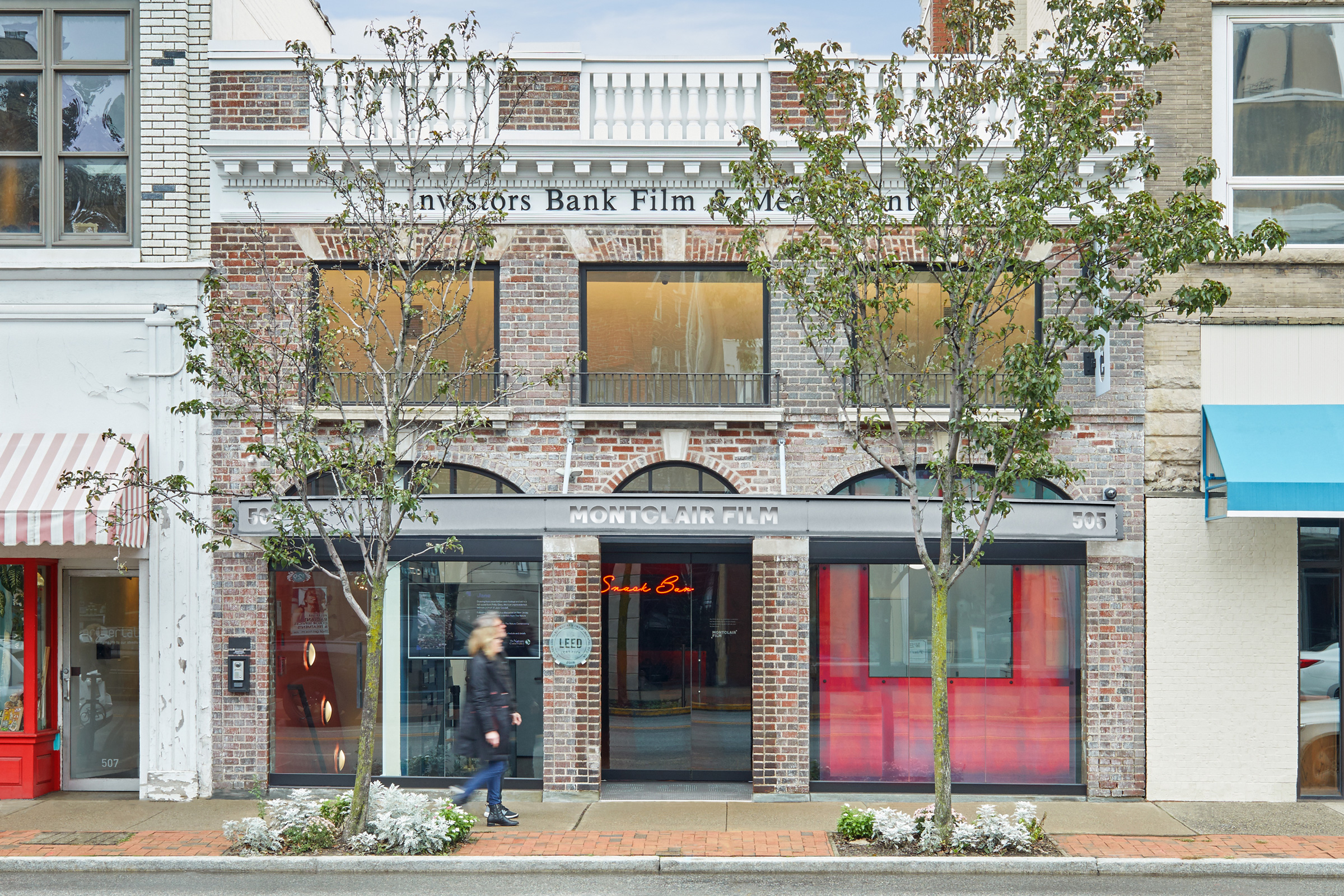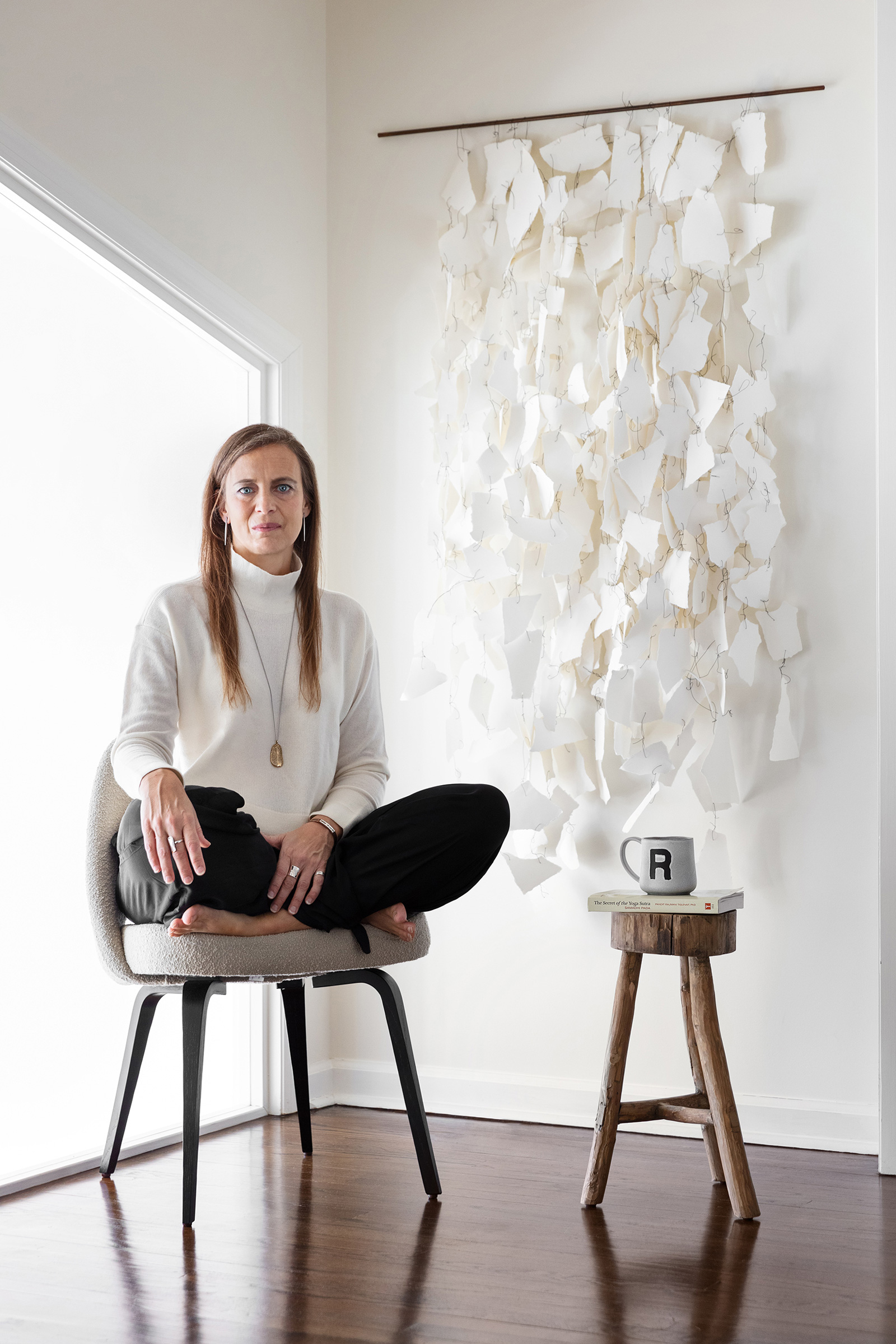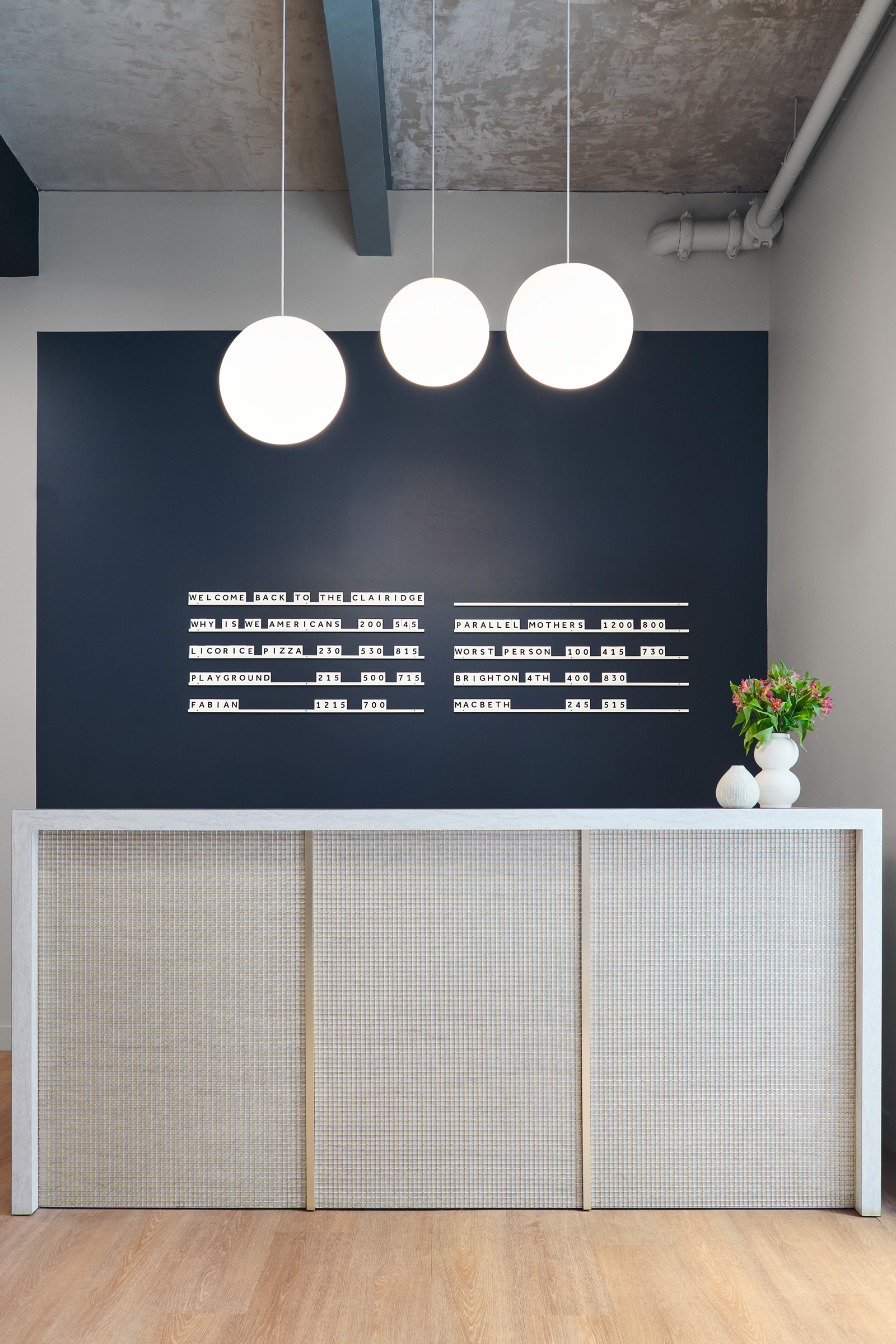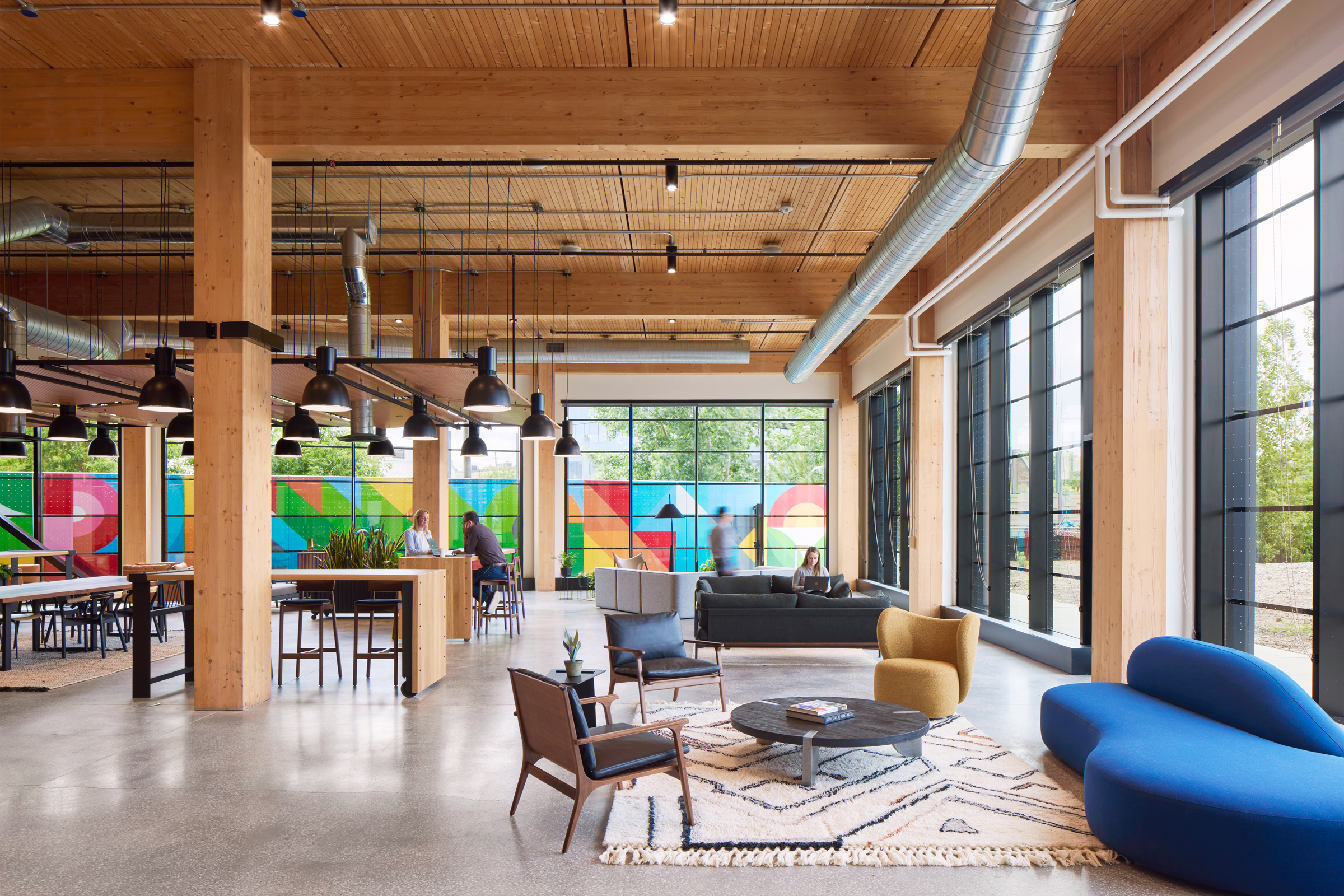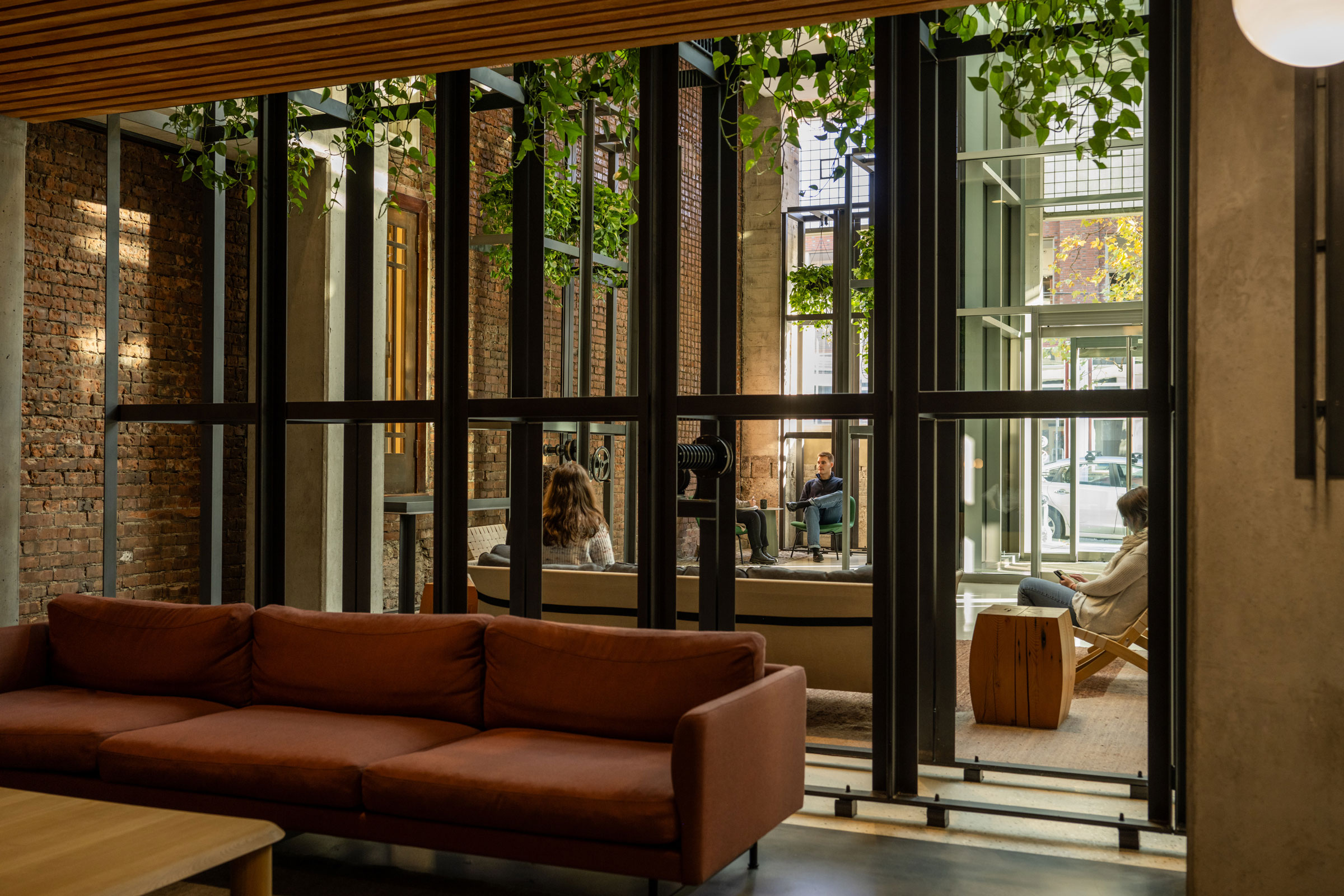Story at a glance:
- Architect Rachael Grochowski strives to connect with the world on a deeper level.
- Grochowski founded her own firm in 2004 with a commitment to designing for equity.
- She wants every element of a project to show a commitment to the service of mindful design.
“Design is spiritual.” It’s spelled out on Rachael Grochowski’s sweater as we sit down for breakfast at the annual Biophilic Leadership Summit, which took place this year at Serenbe, a neighborhood itself designed to focus on well-being, just outside of Atlanta. But the sweater is not just a stylish statement; Grochowski means it. It’s part of why she’s speaking at the event.
For Grochowski, the idea that design is spiritual dates back to her graduate school thesis. In that project she aimed to design a wellness center using elements that existed in structures from nature that she had experienced and found to be meaningful in some way—be it for its sense of place or feelings of intimacy or safety, for example. “They were elements that really resonated with me. As I was designing that project and leaning into ways I could create this space where people could heal, I started to pull those pieces together,” she says.
She began to see and explore more around design’s ability to bring people into the present. “When you start to look at it through that lens, it starts to affect your ability to connect to gratitude—to your own self and to those around you. On a spiritual level I believe design has this ability to bring us back together.”
- Rachael Grochowski started RHG A+D in 2004 after largely working in luxury hospitality. Photo courtesy of RHG A+D
- RHG A+D renovated the Clairidge theater in 2021. Photo by Lisa Russman Photography
She points to design as a true representation of connections between people. One person can’t bring a building to life on their own, for example. “You realize the number of people whose sweat, love, and commitment went toward creating a structure and the dependency on each other to do each one’s job—because I can’t do my job if this person doesn’t do their job. It’s a web of commitment.”
In today’s world most people don’t often consider who physically makes the things they love or even who provides much needed services. “Who collects the trash?” she asks. “We forget that we should be grateful for that, but it’s an important job, frankly. And we forget that people’s hands go to create our homes, too.”
Now based in Montclair, New Jersey, Grochowski started her own firm, RHG A+D, in 2004, after years of working for other firms and working on luxury hospitality projects. “I loved it because there was a lot of craft in it, but I didn’t love that it wasn’t accessible to everyone, and the firms I was working for at that point didn’t have the balance of like, ‘We’re also going to do this project.’”
At some point she decided she didn’t want to work for vanity alone anymore, and she began to reconsider where her skills might be used best. “I’ve always believed that design is for everyone,” she says. “As I grew into my career there was a real moment of, ‘What am I doing? Is this really contributing to the whole? Is it contributing to the well-being of everyone? As a yogi and someone committed to social justice and equity, something didn’t feel right. At that point in time there were other firms doing more equitable work, but what I was doing was not. I loved what I was doing, but it was not for everyone.”
When you experience quality design it changes your life.
When she started her own office she made a commitment to hire diverse architects, and she talked to the team (now 15 people) about how quality design should be for everyone. “When you experience quality design it changes your life. We started doing projects that were more for everyone,” she says. From volunteer or discounted projects for community groups to specifying materials that aren’t toxic, she wanted every element of a project to show a commitment to the service of mindful design. Today, while her projects include high-end residential work, she emphasizes that it’s not about creating the most expensive space. It’s more about helping families lead happier lives. “We’ve had a couple residential clients who’ve said things like, ‘The way you designed our kitchen, our family sits together now every night, and we talk more than we ever have.’ That’s equity in a different way. It’s equity of time and relational equity.”
Grochowski and her firm continue to give of their own time to various nonprofits, too, like The Clairidge, a nonprofit theater that dates back to 1922 that now operates under the Montclair Film umbrella. RHG A+D renovated the theater in 2021. Montclair Film was cofounded by Evie Colbert, Stephen Colbert’s wife, and Bob Feinberg, a titan in the public media sphere. What started as a film fest developed into an educational program that went far beyond interesting films into growing a community around the arts. The film program now includes summer programs that invite out of state high school students to apply for scholarships for hands-on filmmaking workshops. “For some of those students it’s a pathway to college they didn’t know they had.”

